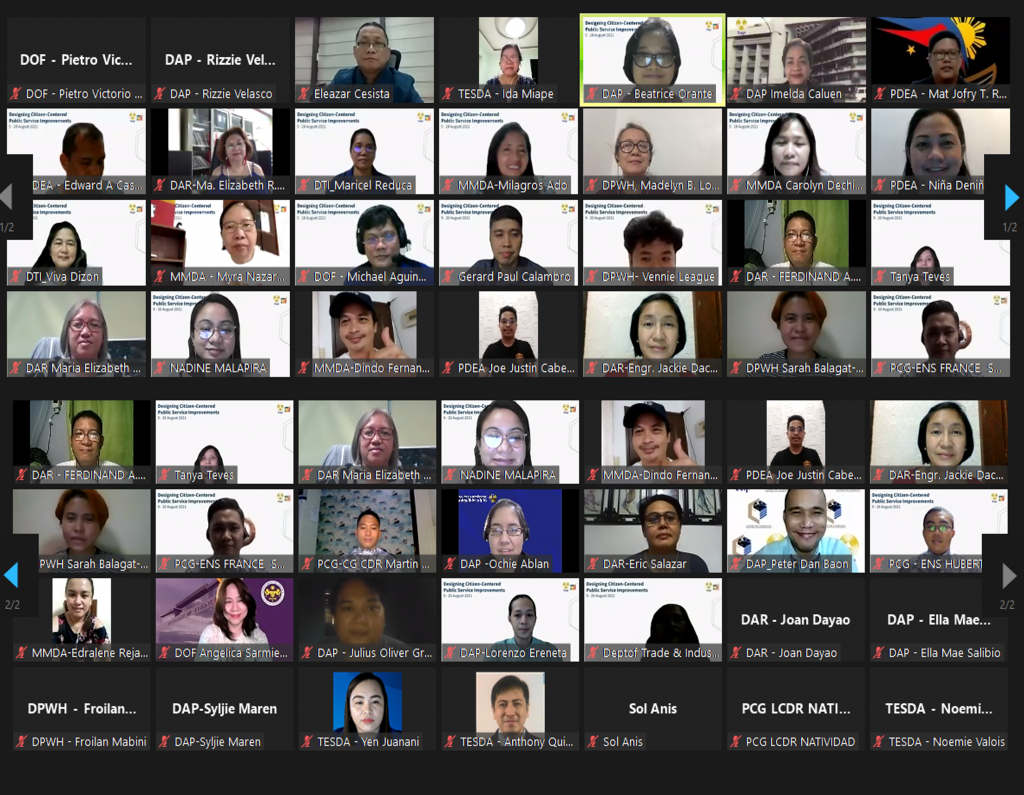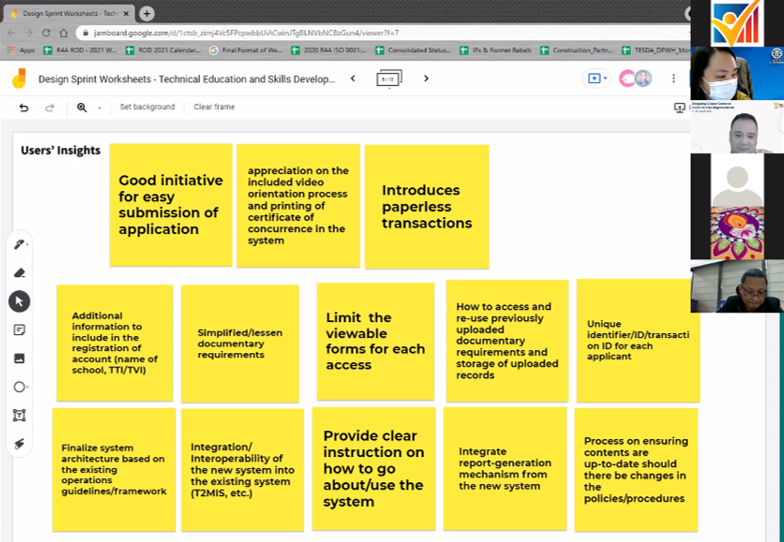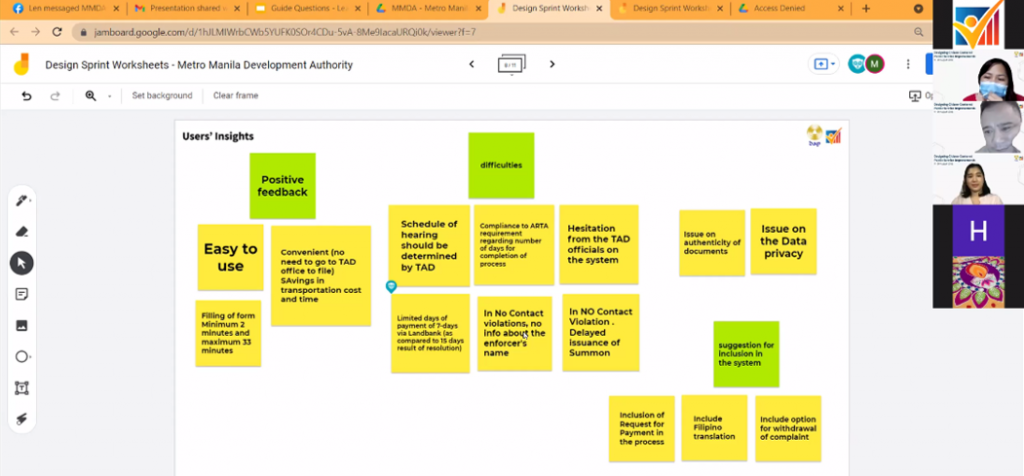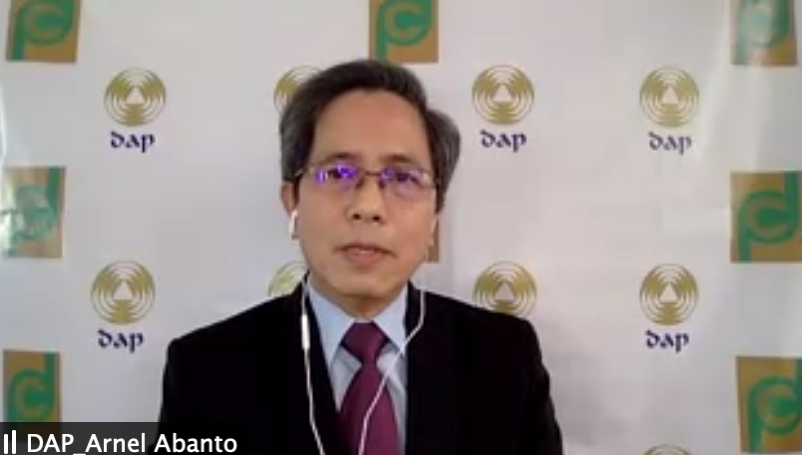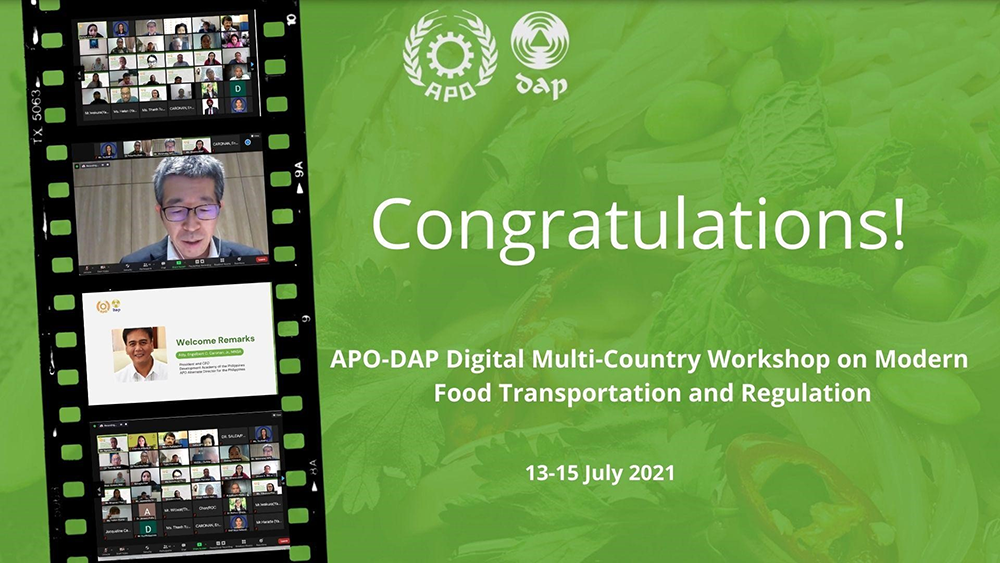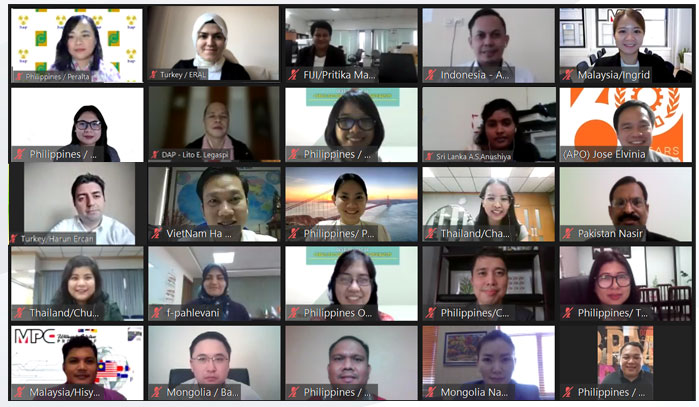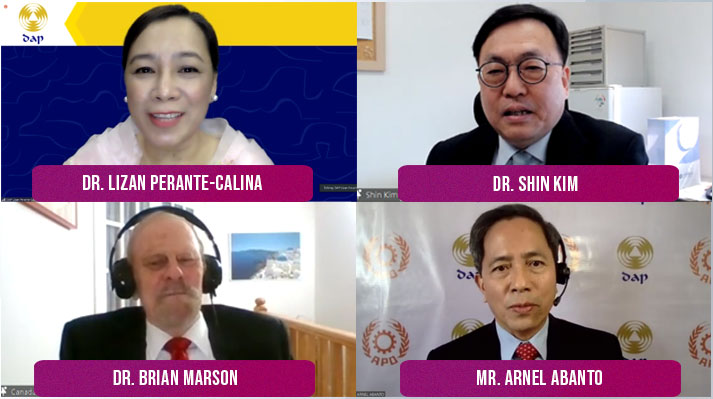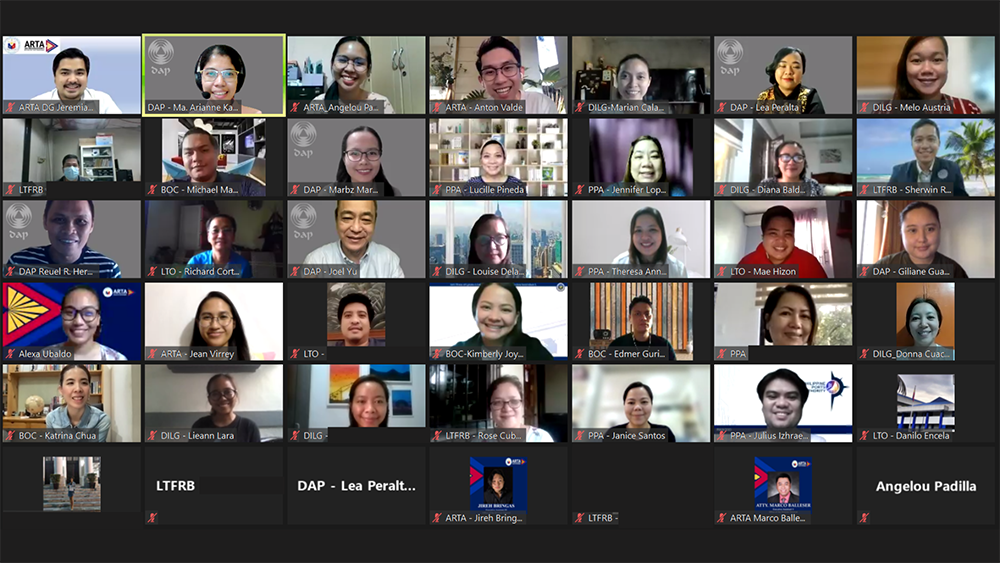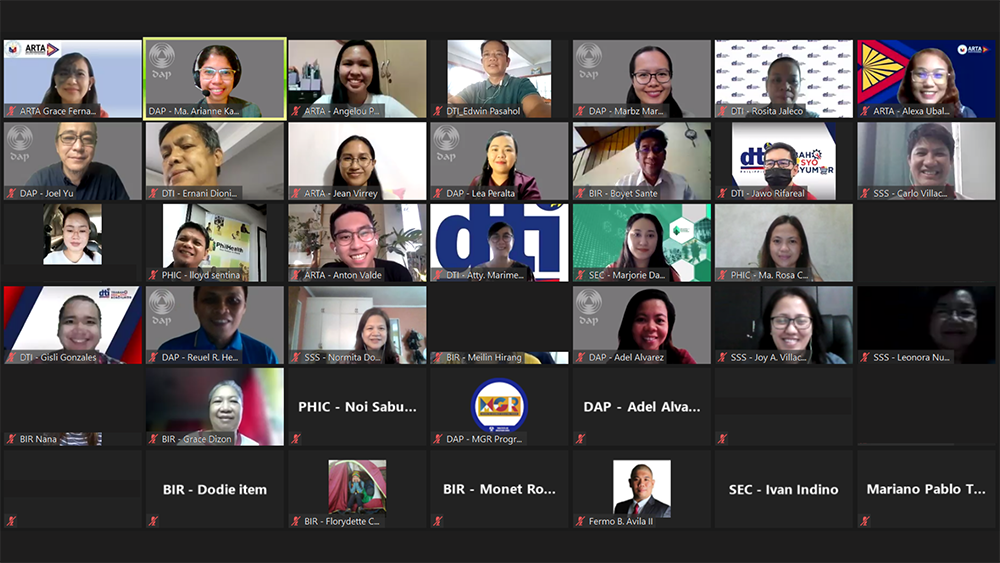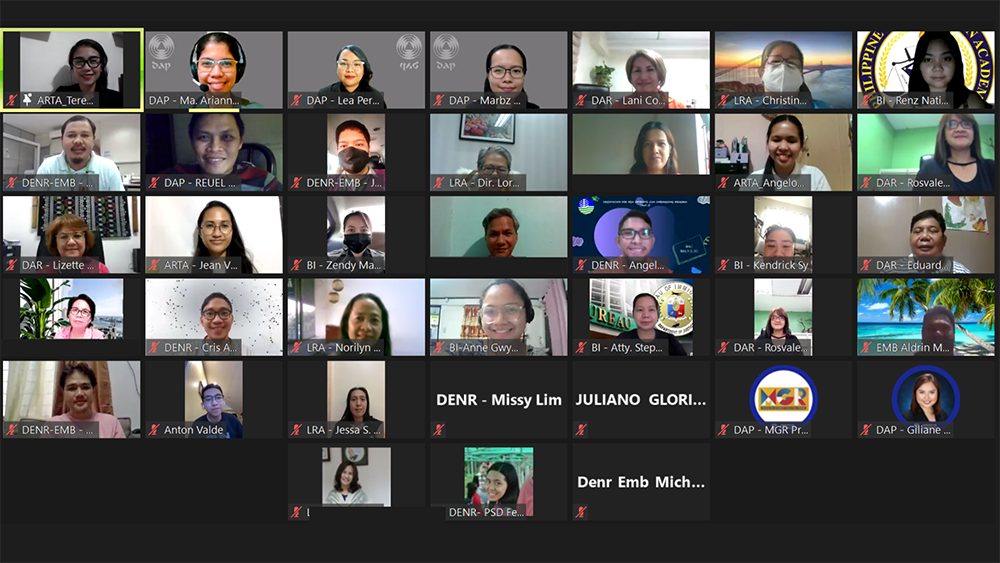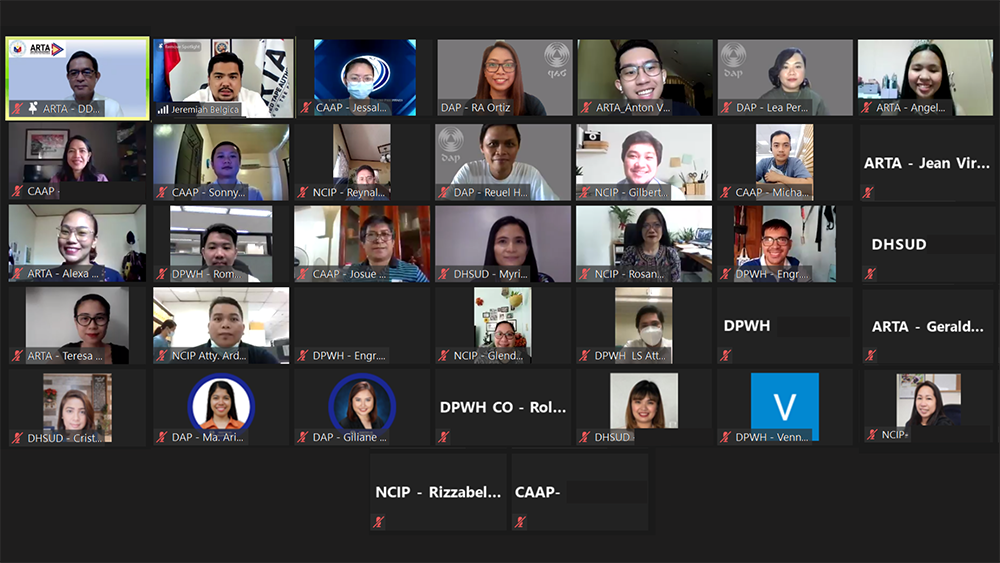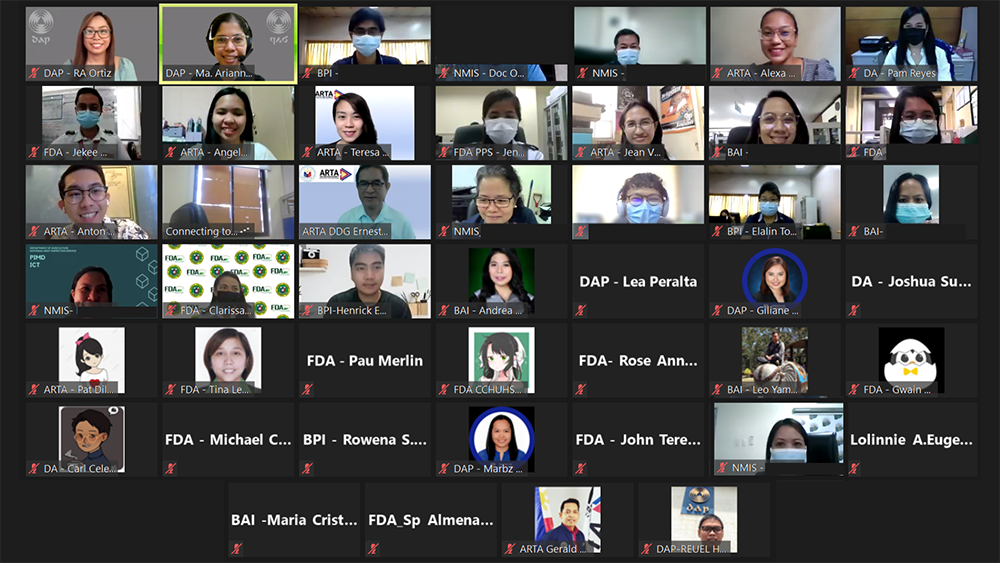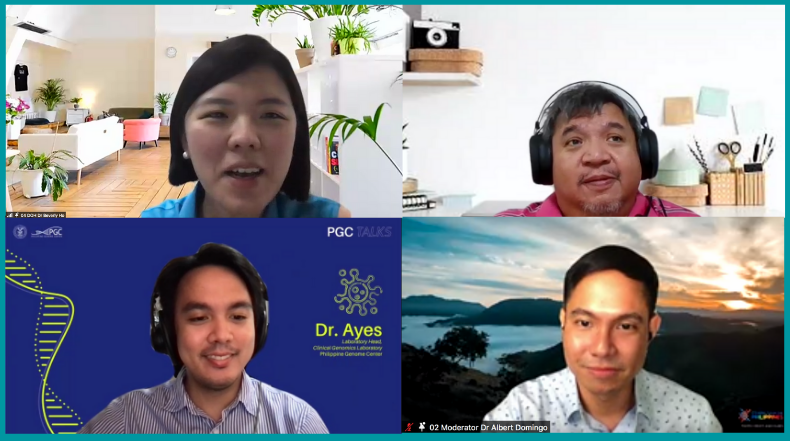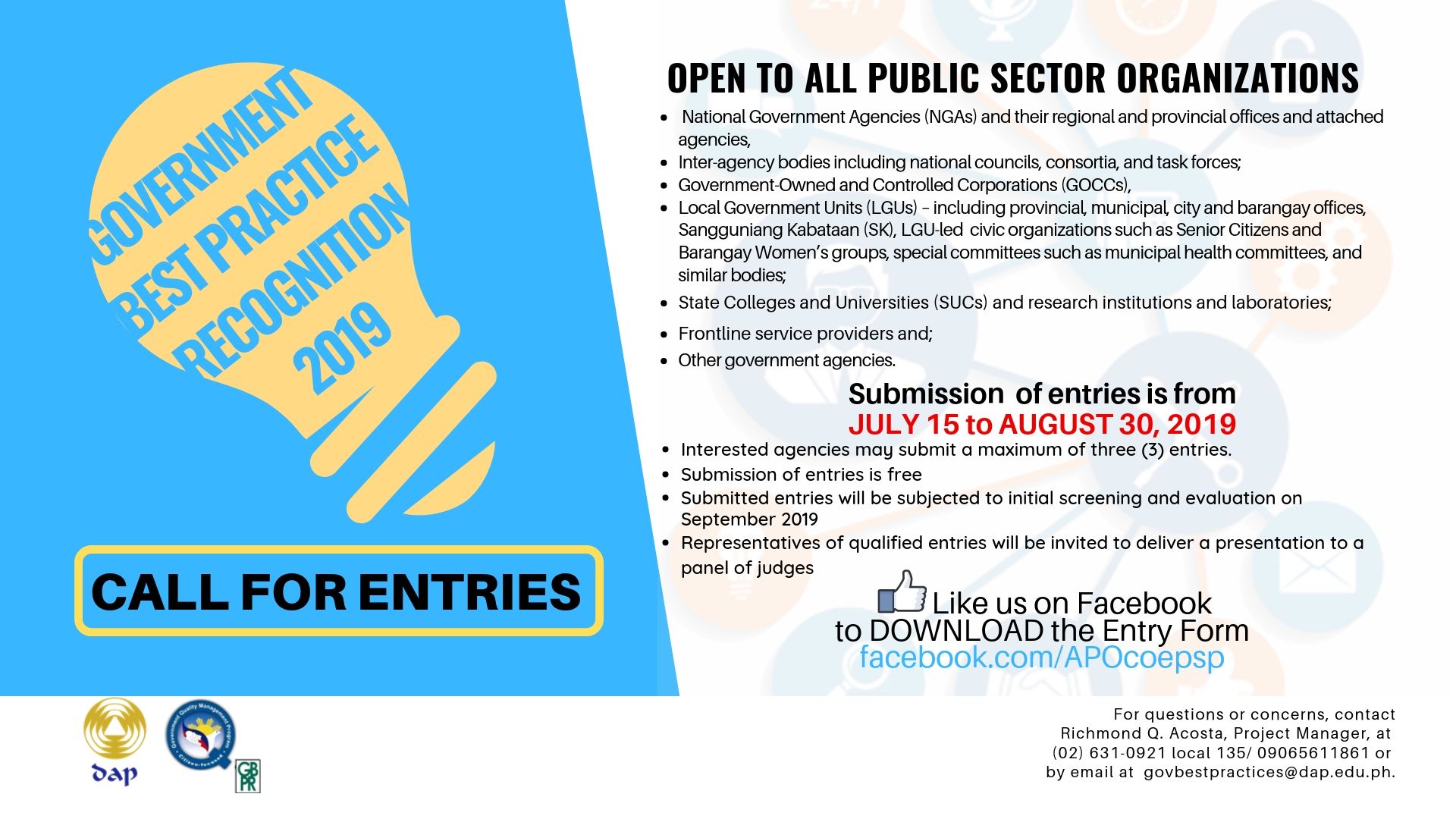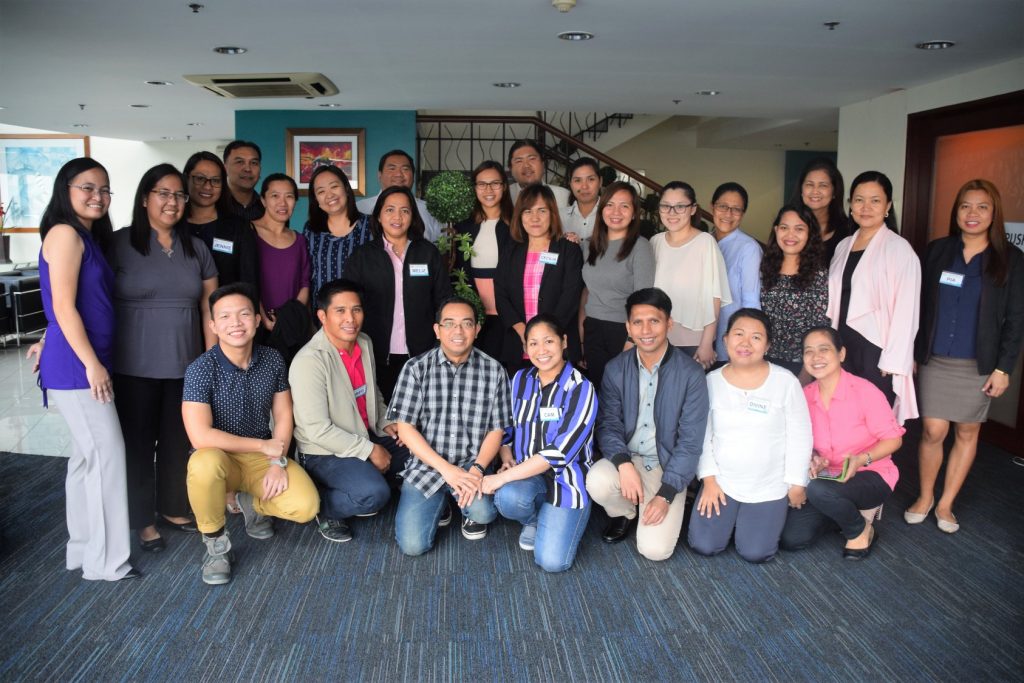
A series of virtual introductory courses, conducted by the Development Academy of the Philippines (DAP), through its Productivity and Development Center (PDC), was attended by a total of 714 participants coming from 48 government agencies to boost their competencies on leveling up their agency’s established Quality Management System (QMS). Undertaken through the Government Quality Management Program (GQMP), the courses covered concepts, principles, implementation, and integration strategies on different standards, approaches, and tools, as well as, best practices, to achieve better service delivery and performance excellence.
The introductory course on ISO 9004 standard, conducted on 14 July 2021, with Ms. Aileen Ricohermoso as DAP Resource Speaker highlighted some of the activities an organization should be looking at to gain the added benefits of having a quality management system. A total of 22 participants on Zoom and 154 viewers on YouTube gained awareness that ISO 9004 standard is not a certifiable standard, but a guidance document that fosters ideas and inspiration for improving a QMS.

QMS Internal Audit Using Remote Auditing with Doctor Ralph Sherwin Corpuz as DAP Resource Speaker, on the other hand, introduced remote auditing as an effective and efficient alternative to traditional face-to-face auditing. The use of technology, and remote auditing techniques have been going on for several years. However, few organizations are implementing them. With the emergence of COVID-19 and its related mobility restrictions, combined with the existing need to conduct regulatory-, legal-, or immediate need-driven audits, we are now finding alternatives to the traditional face-to-face audit that can be implemented. Conducted on 16 July 2021, with 39 participants on Zoom and 165 participants on YouTube, this course briefly discussed the challenges of remote auditing and offered strategies for overcoming them in each part of the audit engagement process — from planning, document review, fieldwork, interviews, to closing meetings. It also shared some ICT tools and platforms that can be utilized in a remote audit.

Organizational Knowledge Improvement Approaches using ISO 30401:2018 Knowledge Management System (KMS), was the 3rd course of the series conducted with Professor Jonilo J. del Rosario as the DAP Resource Person. Held on 29 July 2021 with 22 participants from Zoom and 134 from YouTube viewers, the course provided an appropriate guide in developing a knowledge management system that effectively promotes and enables value creation. Knowledge management was defined as a discipline focused on ways where organizations can craft the said management approach, with respect to their own business and operational environment, reflecting their specific needs and desired outcomes. With ISO 30401, sound knowledge management principles and requirements are available for organizations: a) to be competent in optimizing the value of organizational knowledge; and, b) as a basis for auditing, certifying, evaluating, and recognizing such competency by recognized auditing bodies.

The fourth and last of the introductory courses was the Introductory Course on Innovation Approaches using ISO 56002:2019 Innovation Management System, conducted on 30 July and 18 August 2021, with 32 participants joining Zoom and 146 viewers on YouTube. Participating agencies gained awareness on the establishment, implementation, maintenance, and continual improvement of an innovation management system. The guidance on ISO 56002 standard does not describe detailed activities within the organization, but rather provides guidance at a general level to a) all types of organizations, regardless of type, sector, or size and for temporary organizations and start-ups b) all types of innovations, e.g., product, service, process, model, and method, ranging from incremental to radical; and c) all types of approaches. Also discussed was the Co-creation innovation process which is a tool for ideation and innovative thinking. Patterned after the design thinking process, the co-creation innovation process will aid the participants to identify problems and creative solutions for their agencies’ issues.
The Introductory Courses on Productivity and Quality Improvement Approaches were one of the deliverables of the GQMP that aims to contribute to the enhancement of citizen satisfaction and public sector productivity through government-wide quality improvement.
The DAP, as the National Productivity Organization, seeks to empower leaders, strengthen institutions, and build the nation through pioneering, value-adding, synergistic ideas, concepts, principles, techniques, and technologies addressing development problems of local, national, and international significance. DAP – PDC offers capability building, technical assistance, and research related to productivity and quality improvement. For more information, visit www.dap.edu.ph, email pdc@dap.edu.ph or call 632-2156/2137.
This article was originally posted in http://pdc.dap.edu.ph/index.php/714-participants-from-48-agencies-attended-daps-introductory-courses-on-productivity-and-quality-improvement-approaches-to-boost-competencies-to-level-up-their-qms/

